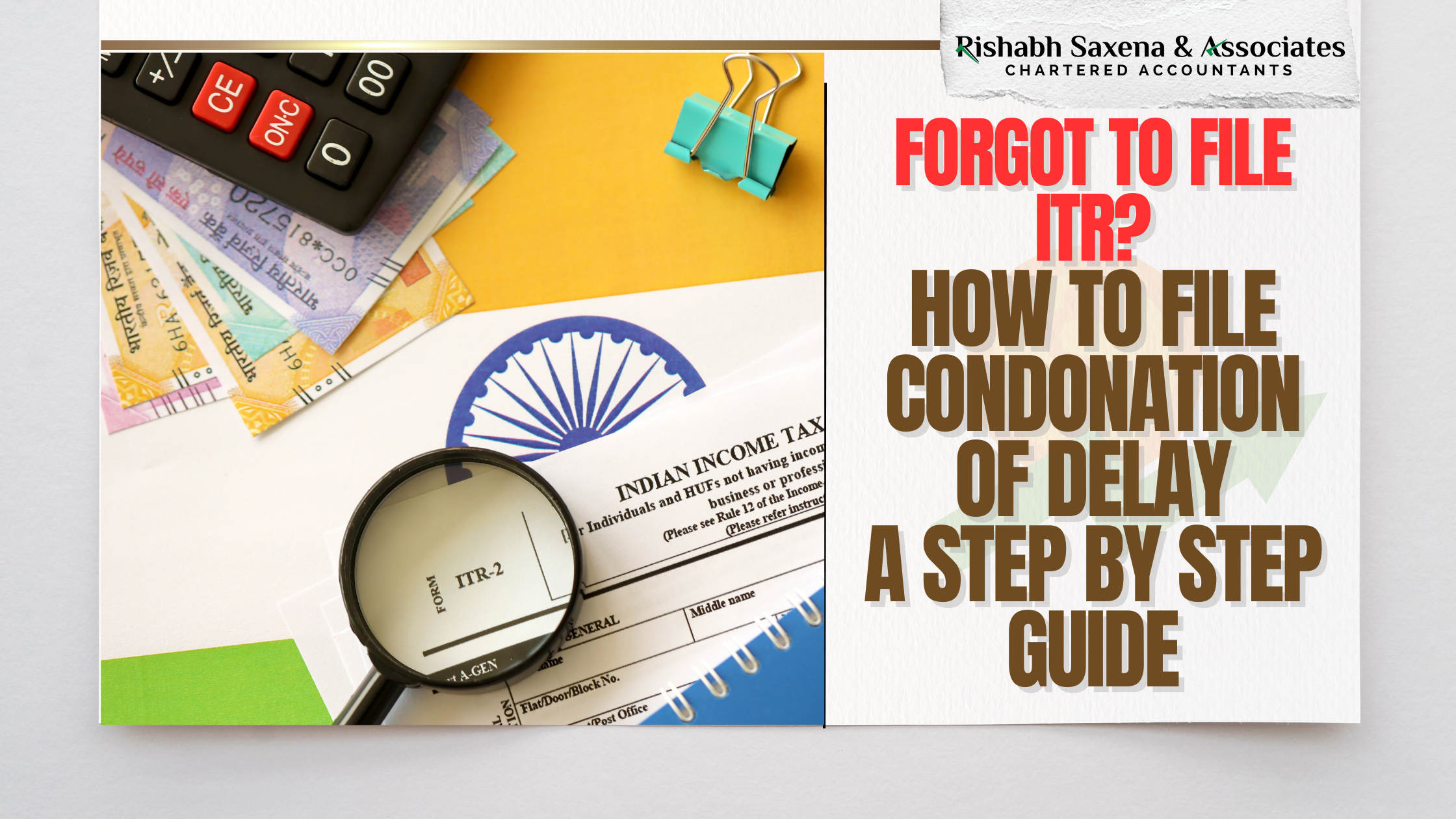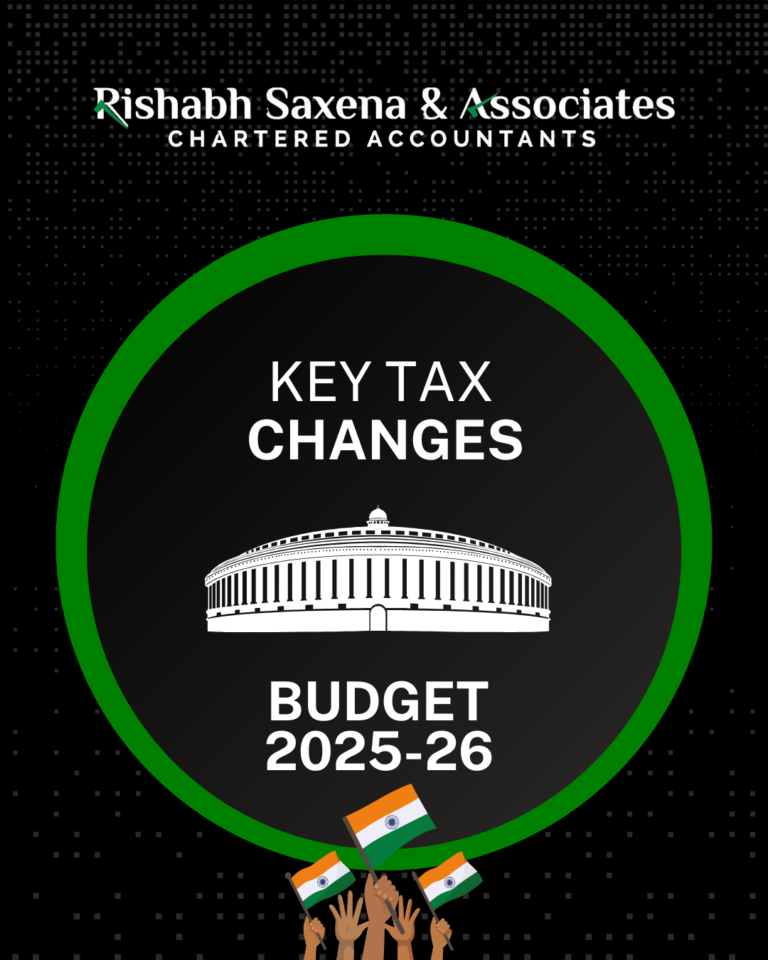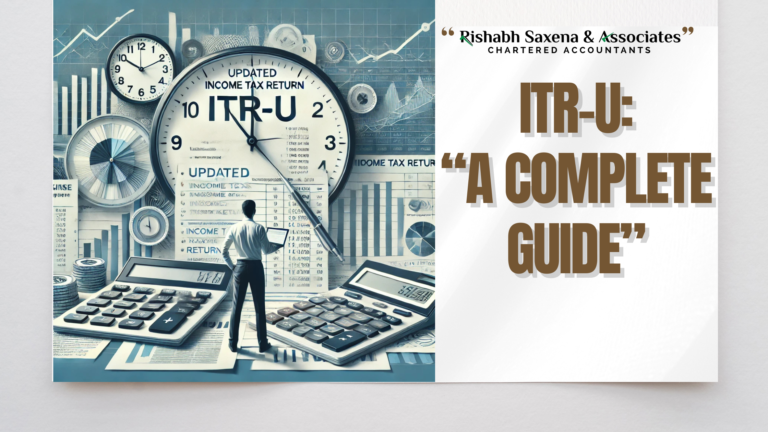How to file a “Condonation of Delay” ITR: A Step-by-Step Guide
Filing your Income Tax Return (ITR) on time is crucial to avoid penalties, interest, and other complications. However, there may be situations where an individual or entity is unable to file their ITR within the prescribed due date. In such cases, the Income Tax Department provides a mechanism known as “Condonation of Delay,” allowing taxpayers to request an extension for filing their ITR beyond the due date. This blog will delve into the details of the condonation of delay, including the step-by-step process, conditions for approval, and other essential information.

Why is it Important to file ITR on or before due date?
Failing to file your ITR on time can lead to various negative consequences that can impact your financial health and legal standing. Some of the key repercussions include:
- Penalties and Interest: If you do not file your ITR by the due date, you may be liable to pay penalties under Section 234F. Additionally, interest under Section 234A may be charged on the tax due.
- Loss of Carry Forward of Losses: The carry forward of losses from one financial year to the next is only allowed if the ITR is filed within the due date. This is particularly important for individuals with business or capital gains losses. If you miss the deadline, you forfeit the right to carry forward these losses.
- Disallowance of Deductions under Section 54: If you have capital gains and wish to claim exemptions under Section 54 (related to the reinvestment of capital gains in another property), failing to file your ITR on time can result in the disallowance of these deductions. This can lead to higher taxable income and, consequently, higher taxes.
- Mandatory Deposit of Capital Gains in Capital Gains Savings Account: For those who cannot invest capital gains in a new property before the due date of filing ITR, the law mandates the deposit of such gains into a Capital Gains Account Scheme (CGAS) before the ITR due date. Failing to file ITR on time can lead to complications in claiming exemptions under Section 54, 54F, or 54EC, as the capital gains may not have been deposited in the prescribed account.
- Difficulty in Obtaining Loans and Visas: Timely filed ITRs are often required by banks and financial institutions when processing loans. Similarly, ITRs are also needed for visa applications. Delayed filing may complicate or delay these processes.
What is Condonation of Delay?
Condonation of Delay refers to the approval granted by the Income Tax Department for filing an Income Tax Return (ITR) after the expiration of the due date. This facility is particularly helpful when the delay in filing the ITR is due to genuine and unavoidable reasons. Once the condonation is granted, the ITR is treated as filed within the prescribed time limit.
Legal Provisions Governing Condonation of Delay
The provisions related to condonation of delay in filing ITR are governed by Section 119(2)(b) of the Income Tax Act, 1961. Under this section, the Central Board of Direct Taxes (CBDT) has the power to authorize the Income Tax Department to condone the delay in filing the return in cases where genuine hardship is proven.
Conditions Under Which Condonation Shall Be Granted
The Income Tax Department has specified certain conditions under which the condonation of delay may be granted. These conditions are designed to ensure that only those taxpayers who face genuine hardship are considered. Below is a summary of the key conditions:
| Condition | Description |
|---|---|
| Genuine Hardship | The delay must be due to a genuine reason that caused hardship to the taxpayer. Examples include medical emergencies, natural calamities, or loss of important documents. |
| Return Type | The condonation is generally applicable to returns claiming refunds, losses to be carried forward, or returns under special circumstances (e.g., Section 80-IA deductions). |
| Time Limit | The application for condonation must be made within a reasonable time frame. The CBDT has prescribed different timelines for different cases, as explained below: |
Authorities Empowered to Grant Condonation:
| Amount Involved | Authority to Approve | Time Limit for Condonation Request |
|---|---|---|
| Below ₹10 Lakhs | Principal Commissioner of Income Tax (PCIT) or Commissioner of Income Tax (CIT) | Up to 6 years from the end of the assessment year |
| ₹10 Lakhs to ₹50 Lakhs | Chief Commissioner of Income Tax (CCIT) or Principal Chief Commissioner of Income Tax (PCCIT) | Up to 6 years from the end of the assessment year |
| Above ₹50 Lakhs | CBDT | Beyond 6 years from the end of the assessment year |
Step-by-Step Guide to Filing a Condonation Request
Here’s a step-by-step guide on how to file a condonation request for delayed ITR filing:
Step 1: Draft a Formal Application
- Prepare a formal application addressing the relevant authority (PCIT, CIT, CCIT, PCCIT, or CBDT).
- Clearly state the reasons for the delay and the genuine hardship faced.
- Attach supporting documents, such as medical records, police reports, or any other evidence that supports your claim.
Step 2: Attach the Required Documents
- Enclose a copy of the Computation of Income that you intend to file after seeking condonation of delay.
- Include any additional documents that demonstrate your eligibility for condonation, such as proof of refund due, or loss to be carried forward.
- Include the documents to justify your claim that you were genuinely unable to file your ITR within the due date Here are some examples of documents that may be required:
| Reason for Delay | Supporting Documents |
| Serious Illness or Hospitalization | Medical reports, hospital bills, doctor’s certificate |
| Death in the Family | Death certificate, proof of relationship |
| Natural Calamities (Floods, Earthquake, etc.) | Government notifications, media reports, photographs |
| Technical Glitches on the e-Filing Portal | Screenshots of errors, acknowledgment from the IT department about the issue |
| Travel Due to Employment | Copies of travel tickets, employer’s certificate of travel requirements |
Step 3: Submit the Application
- Submit the application to the concerned Income Tax Office either physically or through the e-filing portal, depending on the mode allowed by the department. As of now the option to file condonation of delay is not available on e-filing portal. Therefore, the assessee must file the application in physical form.
Step 4: Follow Up
- Regularly follow up with the Income Tax Department to check the status of your application. You can do this by visiting the office in person, calling, or checking online updates.
Step 5: Filing the ITR (Post Approval)
- If your request is approved, you will receive a notification from the Income Tax Department. After receiving approval, file the ITR as per the instructions provided.
Processing of Condonation Request by the Income Tax Department
Once the application is submitted, the department will review the request. Here’s how the process typically unfolds:
| Stage | Description |
|---|---|
| Initial Review | The authority will examine the application and attached documents to assess the genuineness of the hardship claimed. |
| Decision Making | Depending on the amount involved and the nature of the delay, the appropriate authority will decide whether to grant or deny the condonation. |
| Communication | The decision is communicated to the applicant via mail or through the e-filing portal. If approved, instructions on how to proceed with filing the ITR will be provided. |
Sample of Letter of Approval u/s 119(2)(b):
Frequently Asked Questions (FAQs)
Q1: Can condonation be granted for any type of ITR? A: Generally, condonation is granted for cases involving refunds, losses to be carried forward, or specific circumstances as per Section 119(2)(b). However, routine late filings may not qualify.
Q2: What happens if my condonation request is rejected? A: If the condonation request is rejected, the delayed ITR may not be processed, resulting in potential penalties, loss of refund claims, or disallowance of loss carry forward.
Q3: Can I appeal against the rejection of my condonation request? A: Yes, you may appeal against the rejection by submitting a revision petition or approaching the higher authority within the Income Tax Department.
Q4: How long does it take to process a condonation request? A: The processing time may vary depending on the complexity of the case and the authority involved. It can range from a few weeks to several months.
Q5: Can I file an ITR after the end of the assessment year without condonation? A: No, once the assessment year is over, the ITR can only be filed if the delay is condoned by the Income Tax Department.
Conclusion
Filing an ITR on time is crucial to avoid legal complications and financial penalties. However, if you miss the deadline, the Income Tax Department provides an opportunity to file your return through the process of condonation of delay. By following the step-by-step guide and ensuring that your reasons for the delay are genuine and well-documented, you can increase your chances of receiving condonation.
For more detailed information on condonation of delay and related tax matters, it is advisable to consult a tax professional.
You can write us at support@carsaxena.in










Thank you sir for this complete information about condonation/ITR